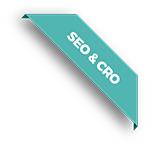How Important is an Integrated Approach When It Comes to SEO & PPC?

For SEO and PPC it’s important to know these factors before making any decisions:
As an integrated marketing agency, we are often asked “Which is best: Search Engine Optimisation (SEO) or Pay Per Click advertising (PPC)?” Despite this being a simple question, it doesn’t really have a simple answer.
The answer to this question depends mainly on your business, industry, competitors and overall objectives. You may believe that for you, one works better than the other, but you are more likely to find that an integrated approach – i.e. using a mixture of the two – is what’s best for your business.
It all comes down to your wider digital marketing strategy. Looking at factors such as your customer personas or customer journeys will help you to determine the best place to start.
WHAT’S THE DIFFERENCE BETWEEN SEO AND PPC?
There are two main differences to consider when looking at search engine optimisation and pay per click advertising:
- Page positioning – PPC adverts appear at the top of the page, above the organic listings (which you’ll be concentrating on for SEO).
- Price – An organic (non-paid) approach doesn’t cost when individuals land on your website, however PPC has a cost for each click.
WHY IS SEO SO IMPORTANT?
Search engine optimisation is the best way to get your website in front of the right people and increase organic traffic. There are many benefits to this approach, which include:
- Increase visibility, brand awareness and credibility
When a search engine user searches a particular phrase to do with your industry and your website appears organically, you’re directly showcasing your expertise and knowledge in that sector. Do this on a regular basis, and your business will become an authoritative voice around that given subject.
- Provide your target audience with the knowledge they need
More often than not, a user will turn to a search engine when they want to find out information. By becoming an authoritative voice that answers the questions your target audience have, you can grow your positive reputation. This can deliver further benefits as your brand becomes more memorable, which can mean your customers will skip the search engines and land straight on your website when they’re ready to make a purchase in the future.
- No cost-per-click
There is also no cost per click when it comes to organic search, meaning they can provide a large return on investment (ROI) over other forms of paid media. This makes search engine optimisation a sustainable method of marketing – your leads won’t dry up completely the moment you stop paying.
There are however, some things to bear in mind when it comes to search engine optimisation. Firstly, achieving visibility and getting to page one of Google’s search results takes time and thorough research. Not only this, but if big global companies like Amazon or Wikipedia dominate the organic search results, it can be difficult to achieve success.
Search engine optimisation also takes time too. You’ll need to build regular fresh and relevant content and carry out research into the best keywords to go after for your business. There are also other factors to consider with SEO such as technical fixes and link building, which can be quite difficult to master alone.
WHY IS PCC IMPORTANT?
PPC can increase brand awareness, traffic and leads easily and effectively. There are many benefits to this, which include:
- Page positioning
Paid search results are the first thing that a search user will see as they are always before the fold. This means that a user will always see your website immediately after searching, rather than having to scroll down to the organic posts.
- Offer a targeted approach
You can target your audience through keywords, time of day, day of the week and geography. PPC is relatively quick to put together which means that you can fine-tune and edit the messaging that you want to promote after testing. If something doesn’t work, you can change easily, allowing you to approach your target audience with strategic and effective messaging.
- Unique approaches available
There’s a range of different types of adverts you can include, which means you can make the most of different formats to boost website traffic. For example, Google allows you to provide visual shopping ads, which is a feature that is not available with organic search.
It’s important to bear in mind that you will have to allocate a budget for PPC, and it can get expensive. Although you won’t have to pay if someone doesn’t click on your website, when people do, it’ll cost you. Paid advertising will require constant investment – if you stop paying, your ads stop working.
As well as this, PPC is quite easy to copy. If a competitor notices that you are running ads, they may also decide to start running ads. This means that competitors can go after the same target audience as you, and if they have a bigger budget, secure more leads.
SEO & PPC
An integrated approach that considers both search engine optimisation alongside pay per click advertising is the best way to ensure success for your business. By using both digital marketing strategies, you are able to drive greater results.
There are many benefits to running both SEO and PPC together. This includes:
- You can use the testing and research carried out for your PPC campaigns in your longer-term SEO strategies.
- Remarketing allows you to stay in front of visitors after they have initially landed on your website through organic search. This allows you to customise messaging.
- You can target your audience at all stages of the customer journey, from research to purchase.
- You can increase confidence and awareness in your business by having both organic and paid visibility.
EDGE CREATIVE
Want to find out more about how SEO and PPC can work for you? We can help. We are currently offering a free initial consultation for those interested in seeing what search engine optimisation and pay per click advertising can do. Please call us on 0121 355 8092 or email info@edge-creative.com.
